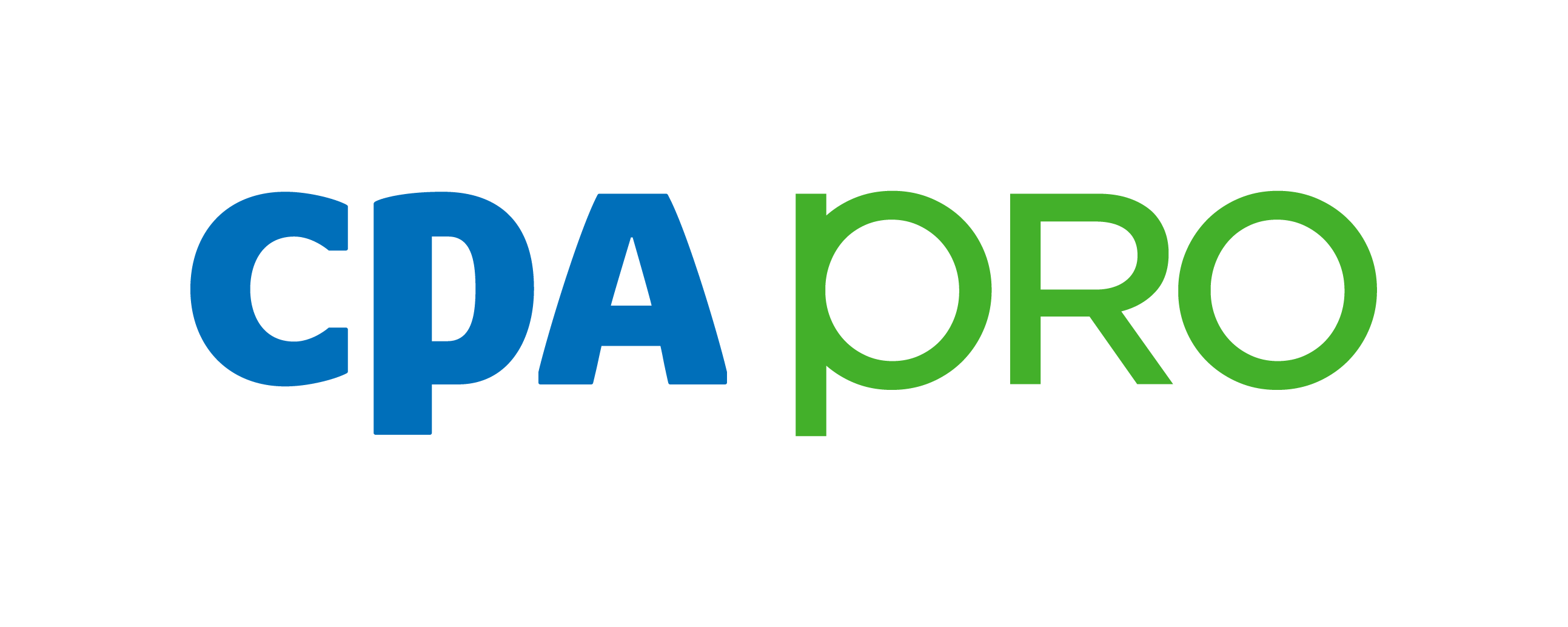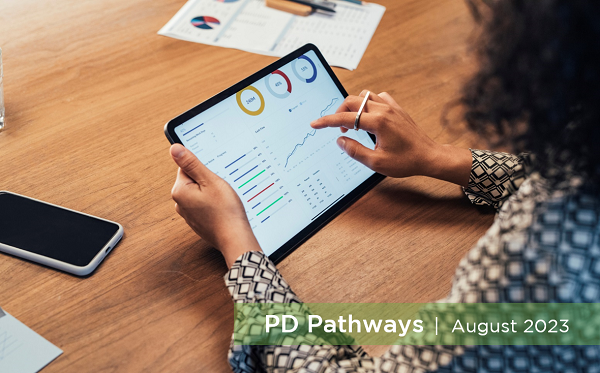[Set Slide Image]
PD Pathways
PD Pathways is a monthly digital newsletter for CPAs and business professionals, showcasing the latest news and resources in CPABC Professional Development.

The Secrets of Speed Reading and Comprehension
By Terry Small, BEd, MA
The following is an excerpt from Terry Small’s Brain Bulletin #13, 14 & 20.
Here is something interesting for you to read. Read it quickly:
"The phaonmneal pweor of the hmuan mnid. I cdnuolt blveiee taht I cluod aulaclty uesdnatnrd waht I was rdanieg. Aoccdrnig to a rscheearch taem at Cmabrigde Uinervtisy, it dseno't mtaetr in waht oerdr the ltteres in a wrod are. The olny iproamtnt tihng is taht the frsit and lsat ltteer be in the rghit pclae. The rset can be a taotl mses and you can sitll raed it whotuit a pboerlm. Tihs is bcuseae the huamn mnid deos not raed ervey lteter by istlef, but the wrod as a wlohe. Such a cdonition is arppoiately cllaed Typoglycemia. Azanmig, huh? Yaeh and you awlyas tghuhot slpeling was ipmorantt!"
So, what's going on here?
This interesting piece was sent to me by Garyln D., a Brain Bulletin Subscriber. Having recently completed my Triple Your Reading Speed seminar, he immediately recognized what was going on. The visual pathways to your brain are very strong. Your brain never sees anything in a vacuum. Your brain takes what it sees and superimposes it on everything that is already in your brain. Learning is connecting new information to what you already know...context. Your brain has seen these words many times and it registers them as a picture based on prior experience. Essentially, your brain puts the letters back in the right order to match the picture. This is one of the secrets of speed reading.
How many of you have a pile of books that you're intending to read someday?
It is hard to find time to read. Everyone is busy. A recent poll recently determined that the #1 cause of stress today is a lack of time. Another poll recently found that 59% of North Americans fail to read a single book in a year.
Reading is good for your brain. In fact, exposing your brain to a constant flow of new ideas may be necessary to protect your brain from degenerative disease. At the very least, when you read, you get to learn, and think a lot...also very good for your brain.
When you cannot, or do not want to read a book word for word, read the first and the LAST sentence of each paragraph only. The first sentence contains the main idea. The last sentence contains the summary or linking thought to the next paragraph. There are books in my library that I have never read cover to cover, word for word. And you're thinking, "Well Terry, you missed a lot." True. But not as much as you because you did not read it at all! You simply cannot read every book you want cover to cover.
Francis Bacon said, "Some books are to be tasted, some chewed, and some few to be swallowed and digested."
Ever get to the bottom of a page and wonder what you just read? You are not alone. Most people's reading comprehension is not very good. Our minds wander. In fact, studies show that average retention is 2% after 30 days.
Your brain works best from the big picture to the details. Not the other way around. Ever do a jigsaw puzzle? That picture on the lid helped. Could you have put the puzzle together without the picture? Probably. Would it take longer? Yes. Is there a greater chance you would become discouraged, and stop working on the puzzle? Yes. Again, have you ever got to the bottom of a page that you just read and asked, "What did I just read?" Odds are your brain went sideways for the same reason....no picture. When you pick up something and just start reading, it is pretty much the same as trying to put a jigsaw puzzle together without the big picture.
So, what is the secret of much better reading comprehension and retention? SCHEMA. Schema is a word that means mental map. It is what you know about a topic before you read about it. Good schema equals good comprehension.
To improve schema when you read any non-fiction material is to read the first sentence of each paragraph only all the way through the chapter. The first sentence of each paragraph contains the main idea or the topic sentence. When you read the first sentence of each paragraph, you get the big picture. Similar to having blueprints BEFORE you construct a building. When you read the details later, they have a place to "stick" in your brain.
Remember, reading makes you smarter. It puts a voice in your head. It is good for your brain!
 Terry Small, B.Ed., M.A., is a master teacher and Canada's leading learning skills specialist. He is the author of the Brain Bulletin with over 35,000 subscribers worldwide. Terry has presented on the brain for over 34 years to over 300,000 people in organizations around the world. His knowledge, warmth, humour and dynamic presentation style have made him a much sought-after speaker at workshops and conferences. Terry often appears on TV, radio, and in the press. He recently appeared on BCTV, Global, CKNW and Student Success. His presentations are practical and based on the latest brain science.
Terry Small, B.Ed., M.A., is a master teacher and Canada's leading learning skills specialist. He is the author of the Brain Bulletin with over 35,000 subscribers worldwide. Terry has presented on the brain for over 34 years to over 300,000 people in organizations around the world. His knowledge, warmth, humour and dynamic presentation style have made him a much sought-after speaker at workshops and conferences. Terry often appears on TV, radio, and in the press. He recently appeared on BCTV, Global, CKNW and Student Success. His presentations are practical and based on the latest brain science.
Learn more from Terry in-person, as he delivers the morning plenary - The Business of Learning: Preparing Your Mind for the Future - at our upcoming PD Nexus Business & Innovation Insights on December 13. You can also catch him at one of his live virtual or in-person seminars on Triple Your Reading Speed, Brain Focus: The Power of Full Engagement or Wiring Your Brain for High Impact Leadership

Upcoming New Titles for Fall
Here are some new titles to watch out for in our Fall/Winter Program. Click here for a comprehensive list of new titles.
Audits - Group Audit Considerations (Revised CAS 600)
This course provides an overview of the key requirements of the revised standard, highlights changes and provides guidance on scalability for the less complex entity with few or no external component auditors.
Live Virtual (Nov 21)
Read more on Audits – Group Audit Considerations
Compilations - Specific Topics
In this course, practical examples will be used to illustrate areas where practitioners are having difficulty implementing the new standards from the scope of the standard, to engagement acceptance / continuance, performance of the engagement and reporting.
Live Virtual (Nov 30)
Vancouver (Nov 23)
Read more on Compilations - Specific Topics
LEAN for the Finance Manager
This hands-on seminar will give both new and experienced financial leaders an opportunity to discover and discuss the implementation of LEAN concepts and tools.
Live Virtual (Nov 16)
Read more on Lean for the Finance Manager
The Essentials of Project Management
This workshop aims to inspire you to embrace project management as a strategic competency and an essential tool for achieving success.
Live Virtual (Nov 27-28)
Read more on The Essentials of Project Management
The Power of the Pen
In this seminar, the instructor will share proven, crowd favorite, quick and easy ways to leverage the power of the pen in your day-to-day, helping you connect with clarity and move forward with the most important things in your life. All you need is a pen and paper and a moment of your time.
Live Virtual (Nov 17- Dec 15)
Read more on The Power of the Pen
Upcoming PD Nexus Days
Our Nexus Days are focused on exposing members to new knowledge and discussions on topical subject matters, in environments where members can also benefit from networking and learning from peers. Here are our PD Nexus Days scheduled for Fall.
Local Government Accounting & Auditing Workshop
This joint workshop is presented by the Government Finance Officers Association of BC (GFOABC) and CPABC. The objective of this workshop is to provide a forum for practitioners to discuss the accounting, auditing, reporting, and financing issues facing local governments. Practices within the Local Government sector are ever evolving.
Vancouver (Nov 23-24)
Read more on Local Government Accounting & Auditing Workshop
Business & Innovation Insights
This insightful day of professional development will help you navigate an exciting, unknown future with confidence. Attendees will be able to network with peers and learn from inspiring speakers. Sessions have been updated to keep as current and relevant as possible in our present environment.
Vancouver (Dec 13)
Read more on Business & Innovation Insights
Upcoming In-person Seminars
Here are some in-person seminars scheduled for Fall. View the complete list on our website.
Business Valuations - Fundamentals
The seminar focuses on business valuation interpretation and the mechanics of the valuation process under an asset approach, income approach, and market approach.
Vancouver (Oct 24)
Read more on Business Valuations - Fundamentals
Corporate Restructuring - Fundamentals
This full-day seminar highlights fundamental income tax considerations that arise in corporate reorganizations, including a discussion of related provisions and key pitfalls to avoid.
Vancouver (Nov 20)
Read more on Corporate Restructuring - Fundamentals
Effective Presentation and Public Speaking Skills Workshop for Accountants
This full day workshop is designed to give accounting professionals increased confidence and skills in building and delivering presentations.
Vancouver (Nov 24)
Read more on Effective Presentation
Income Tax - Real Estate
This seminar identifies and reviews significant income taxation issues arising from various aspects of real estate activities and includes practical, business-focused suggestions for dealing with such issues.
Vancouver (Nov 2)
Read more on Income Tax – Real Estate
RIP - Estate and Testamentary Trust Returns
This seminar provides a review of the issues faced when preparing estate and relevant testamentary trust filings for deceased taxpayers.
Vancouver (Nov 10)
Read more on RIP Estate and Testamentary Trust


CPA Excellence: Elevate Your Skills for Success
The accounting profession is evolving rapidly due to advancements in technology, changes in regulations, and shifting business landscapes. To succeed in 2023 and beyond, CPAs should consider developing or honing the following essential skills:
Regulatory Knowledge
Continually update your knowledge of International Financial Reporting Standards (IFRS), Accounting Standards for Private Enterprises (ASPE), and the Canadian Standard for Quality Management as these standards evolve. Keep abreast of changes in tax laws and regulations, especially in the areas of Personal and Corporate Taxation, Trusts and Estate planning.
Technology Proficiency
Learn about emerging technologies for Accountants, including Blockchain and Cryptocurrencies. Understand the basics of blockchain, cryptocurrencies, big data, artificial intelligence, and machine learning, as well as some of the uses, benefits, risks, and threats posed to legacy businesses by these innovative yet disruptive platforms. Discover techniques for securing your data, including encryption, virus protection, safe communications, electronic signatures, secure authentication, and more.
Soft Skills
Strong verbal and written communication skills are essential for presenting financial information clearly to clients, colleagues, and stakeholders. The ability to analyze complex financial data, identify trends, and make informed decisions is a valuable skill. Be open to change and ready to adapt to new technologies, regulations, and work environments. Ethical considerations are paramount in accounting. CPAs must exercise sound ethical judgment in all professional interactions.
Business Acumen
Navigate the complexities of the business world effectively. Understand the broader business context and be able to align financial strategies with organizational goals. Building and maintaining strong client relationships is crucial for success in accounting. CPAs should have a solid grasp of risk management principles and be able to assess and mitigate financial risks effectively.
It is essential for CPAs to stay current with the latest industry trends, attend professional development courses, and engage with relevant professional organizations to continually enhance your skills and knowledge.


Distinguished Leadership Development Expert
Meet Dr. Jim Murray, Hon BA, MA, MSc, EdD, CEO of optimal solutions international, a firm dedicated to helping people and organizations achieve their full potential.
-(002).png) Jim has taught his courses for CPABC since 1982. He is the architect of several executive development programs for five provincial CPA bodies, has published four best-selling books and provided strategic counsel to over 600 organizations. He has been nationally honoured by the university community and formally recognized for “excellence in the design and delivery of life-long learning”. His full bio is on SmartLeaders.ca.
Jim has taught his courses for CPABC since 1982. He is the architect of several executive development programs for five provincial CPA bodies, has published four best-selling books and provided strategic counsel to over 600 organizations. He has been nationally honoured by the university community and formally recognized for “excellence in the design and delivery of life-long learning”. His full bio is on SmartLeaders.ca.
Learn from Jim at one of his upcoming live virtual seminars on Negotiating Mastery Certificate Program, Conflict: Changing Viewpoints and Influencing Behaviors and Becoming... what you really want to be.
With an overall rating of 4.1 out of 5, here are what past participants have to say about their seminar experience with Jim:
“Jim is very experienced. He shared a lot of his coaching experience to us. Very thought provoking. Highly recommend”
“Jim is amazing and a great wealth of knowledge. Many, many nuggets to incorporate into daily life.”
“Great instructor! I really enjoyed his seminar.”

Free On-Demand Seminars
These titles are eligible for verifiable CPD hours – in order to claim these hours as verifiable, you will be required to successfully complete a short quiz.
Assurance Firms: Common Inspection Deficiencies in Practice Review
This course covers common inspection deficiencies on audit and review, as well as compilation, engagements identified by CPABC Practice Review and provides examples of some root causes that result in firms not meeting standards. It will also highlight certain aspects of the new CSQM standards, as it is anticipated that this will give rise to deficiencies.
Non-assurance Firms: Common Inspection Deficiencies in Practice Review
This course covers common inspection deficiencies on compilation engagements identified by CPABC Practice Review and provides examples of some root causes that result in firms not meeting standards. It will also highlight certain aspects of the new CSQM standards, as it is anticipated that this will give rise to deficiencies.
No Cause? No Worries - Practical Alternatives to Termination for Cause
This presentation will explore some practical alternatives to dealing with problematic employees that you can implement to avoid the issues arising in the first place; to end the employment without the risks of terminating for cause; and to resolve claims if a termination for cause results in threats of litigation.

PD Pathways
Reminder
The Canadian Standards for Quality Control (CSQC1) have replaced the Canadian Standard for Quality Management (CSQM1 and CSQM2) and related amendments to relevant assurance standards.
For non-assurance firms, which includes Compilation Engagement providers, the systems of quality management for related services engagements are required to be implemented by December 15, 2023.
Did You Know?

PD courses that carry this wordmark are designed specifically for CPAs by the CPA profession and are designed to help you adapt to industry changes and advance your career with the latest industry content delivered in a way that works for you.
Be sure to watch for the wordmark while browsing through the course descriptions for courses currently offered in CPABC’s fall/winter PD program.
Click here to browse some of the titles we offer.



